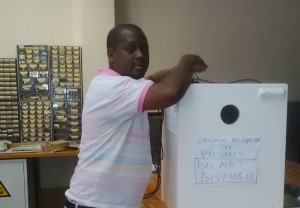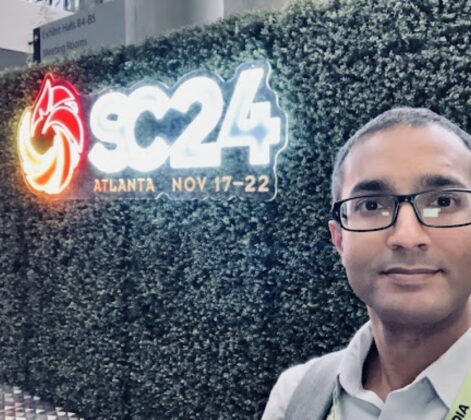
Seforo designed an incubation system with a proportional-integral-derivative controller (PID) to ensure Lesotho’s first locally-produced chickens are kept at exactly 37.7 degrees Celsius.
Seforo is a lecturer at the National University of Lesotho in the Department of Physics and Electronics where he teaches courses on analogue, digital, and large-scale circuit designs. His academic and research interests involve wireless communication networks, remote control and monitoring of electronic appliances, high performance computing, particle physics, and renewable energy. As the university’s computer lab administrator, he supervises students, and supports researchers who use the high performance computing resources.
As a volunteer, he advises the Solar Turbine Group (STG), an international project that is building Concentrated Solar Power (CSP) systems for rural communities and health facilities in Lesotho. This expertise has made him the university’s go-to academic and advisory resource for questions relating to the installation or development of solar photo-voltaic (PV) systems. He has helped to shape the university’s academic curriculum to include the theory behind PV systems, system sizing, inter-federated and national power grid integration, budgeting, project planning, and more.
Through the university’s HPC task team, he contributes expertise acquired through work with the Large Hadron Collider (LHC) experiment at CERN in Geneva Switzerland. The aims and objectives of the task team include formulating advanced cyberinfrastructure policy for the Lesotho National Research and Education Network (LeNREN), and to inform national stakeholders about its relevance to national education, research, industrial, and diplomatic missions. One of their first projects involves an HPC system that supports the Lesotho Meteorological Services used for weather predictions.
Seforo recently applied for a grant that would allow his university to acquire two NVIDIA Graphics Processing Units (GPU). Using the new GPUs, he plans to set up a mini HPC system that will support additional academic objectives. He was accepted by the University of Cape Town where he will soon pursue a PhD in electrical engineering. For his thesis, he hopes to develop a GPU-accelerated algorithm that will reconstruct particle tracks from LHC detector hits, via Field Programmable Gate Arrays (FPGAs).



